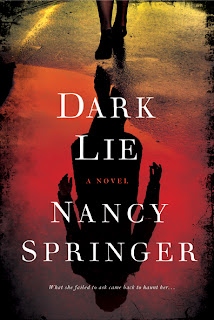At the end of each year, book reviewers go gaga over list-making, selecting
books published over the course of the past year that they consider "Top 10" and
"Best Of" reads. This year, six of JVNLA's books have been named to lists put together by the
Los Angeles Times, Daily Candy, Kirkus, The Boston Globe, Pop Sugar, and more! We are excited to announce these books, lauded as having made a lasting impression on 2012, below:
THE MISEDUCATION OF CAMERON POST by Emily M. Danforth
In the introduction to their Top Ten List of Best Young Adult Books of 2012,
The Boston Globe wrote, “We find that the stories and characters in YA literature are as compelling (sometimes more so) than novels written for our own demographic.” Among this new generation of YA novels, loved by teens, loved by adults, Emily M. Danforth's THE MISEDUCATION OF CAMERON POST stands out.
The Boston Globe included it in
their top ten list and also called the novel “evocative and stunningly written," praising it as “a coming-of-age story" for anyone who "has felt like an outsider or stopped and started her way toward an authentic self."
CAMERON POST was also named to
School Library Journal's
Best Fiction Books of 2012 and
Kirkus's
Best Teen Books of 2012. It cleaned up at
Booklist,
making their list for
Editors' Choice: Books for Youth for 2012,
Top 10 First Novels for Youth for 2012, and
Top 10 Religion and Spirituality Books for Youth for 2012.
The Huffington Post also named it to their list of
Top Ten Young Adult Books of 2012, noting that the heroine
will get “under your skin (in a good way) and stay with you long after
you finish the book."
Each year,
AfterEllen.com
gives out
Visibility Awards “to honor the best lesbian and bi
people, characters, events and moments of the year.” They polled their
fan base to pick among top nominees in various categories (over 750,000
votes were cast) and also named a staff pick for each category. For
Best Book of the Year, fans as well as staff chose
THE MISEDUCATION OF CAMERON POST! The staff commented, "Danforth's story is heartbreaking and healing in equal measure."
Speaking of awards, CAMERON POST was also
named a finalist for the William C. Morris Debut Award. This award is given annually by
YALSA (the Young Adult Library Services Association) to honor “impressive new voices in young adult literature." In a recent post,
The Hub, the blog connecting YALSA to their online teen readers,
spoke to some of the likely reasons CAMERON POST was named a finalist, calling it a novel to be “savored,” “a book of lasting images,” “heartbreaking yet hopeful.” The winner of the William C. Morris Debut Award will be
announced on January 28, so keep your fingers crossed for CAMERON POST!
THE MISEDUCATION OF CAMERON POST was released in February 2012 by
Balzer+Bray.
WE ONLY KNOW SO MUCH by Elizabeth Crane
Daily Candy created
a list of Can't-Miss Books of the Year, which featured Elizabeth Crane's WE ONLY KNOW SO MUCH. The website that is all about “fashion, food, and fun” calls the book a “darkly comic gift” that made the editors “cringe-laugh the whole way through.”
Harper Perennial published WE ONLY KNOW SO MUCH in June 2012.
DARK LIE by Nancy Springer
Over at
The Crime Fiction Collective, reviewer Marlyn Beebe created a
Favorite Mysteries of 2012 list. The collective is comprised of reviewers, editors, and authors who release essays, reviews, and updates on thriller fiction and digital publishing. Included among Marlyn's favorites was Nancy Springer's DARK LIE. In Marlyn's
review of DARK LIE on her own blog,
Stuff and Nonsense, she wrote, DARK LIE “is a gripping story that draws the reader in and doesn't let go until the final page."
DARK LIE was released from
NAL (New American Library) in November 2012.
ON POLITICS by Alan Ryan
In
Los Angeles Times book critic David L. Ulin's introduction to 2012's best titles of the year, Ulin wrote that 2012 marked a return to books “that both portray and reflect upon the spirit of their moment, telling not just a story but using it to illustrate something about the world in which we live.” Ulin also notes that this type of writing has been missing since the 1960s. Fortunately for all of us, we are witness to the second coming of "writing that takes the measure of the moment." One such book named to Ulin's
top ten books of 2012 is Alan Ryan's two-volume compendium of political thought, ON POLITICS.
ON POLITICS also made
Kirkus's list of
Best Nonfiction Books of 2012.
Kirkus gave ON POLITICS
a starred review, calling it "provocative, illuminating, and entertaining—an exemplary work of philosophy and history."
The Daily Beast highlighted ON POLITICS in their end-of-the-year
Best Books of 2012 Holiday Gift Guide, noting that it may be the perfect gift for "your aunt or uncle who's a college professor."
ON POLITICS came out in October 2012 from
Liveright.
PASSION BLUE by Victoria Strauss
In October,
Kirkus gave PASSION BLUE by Victoria Strauss a rave
starred review and selected it as an Editor's Pick for Fall 2012. Naturally, at the end of the year,
Kirkus named the book to its list of
Best Teen Books of 2012. Among other praises the review magazine heaped upon the novel and its main character's "achingly real search for her heart's desire,"
Kirkus called PASSION BLUE "a rare, rewarding, sumptuous exploration of artistic passion."
PASSION BLUE was published by
Amazon Children's Publishing in November 2012.
THE LAST NUDE by Ellis Avery
Last year, in our
blog post round-up of titles featured on "Top 10" and "Best Of" lists for 2011, we noted that THE LAST NUDE had been included in
Library Journal's 2011 list of
Top 25 Books to Read in 2012. Since then, THE LAST NUDE has received dazzling praise--from
More Magazine's statement that "Avery's prose sings" to
O Magazine's declaration "We've been loving this tough-but-vulnerable heroine," and from
Kirkus praising the book as a "dark, sexy romp" to a starred
Booklist review calling it "glittering, luminescent...riveting."
Fittingly, THE LAST NUDE was included in entertainment and style website
Pop Sugar's
Favorite Books of 2012 / Must Read List of 2012.
THE LAST NUDE appeared from
Riverhead in January 2012.


















